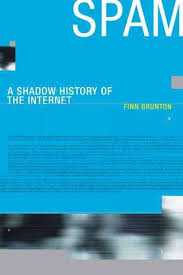
Stanford’s Sean F. Reardon has a provocative editorial in Saturday’s New York Times that’s a must-read for all who feel they are in the midst of the tornado of K-12 school reform. You’ll want to read the whole thing for yourself, but here are some of the points that hit me as resonant and important to have in my toolkit:
[T]he children of the rich perform better in school, on average, than children from middle-class or poor families …
Whether you think it deeply unjust, lamentable but inevitable, or obvious and unproblematic, this is hardly news …
What is news is that in the United States over the last few decades these differences in educational success between high- and lower-income students have grown substantially…
…Can schools provide children a way out of poverty?…
Whatever we’ve been doing in our schools, it hasn’t reduced educational inequality between children from upper- and lower-income families …
The income gap in academic achievement is not growing because the test scores of poor students are dropping or because our schools are in decline. In fact, average test scores on the National Assessment of Educational Progress, the so-called Nation’s Report Card, have been rising — substantially in math and very slowly in reading — since the 1970s… there is no evidence that average test scores have declined over the last three decades for any age or economic group.
The widening income disparity in academic achievement is not a result of widening racial gaps in achievement, either. The achievement gaps between blacks and whites, and Hispanic and non-Hispanic whites have been narrowing slowly over the last two decades, trends that actually keep the yawning gap between higher- and lower-income students from getting even wider. If we look at the test scores of white students only, we find the same growing gap between high- and low-income children as we see in the population as a whole.
It may seem counterintuitive, but schools don’t seem to produce much of the disparity in test scores between high- and low-income students. We know this because children from rich and poor families score very differently on school readiness tests when they enter kindergarten, and this gap grows by less than 10 percent between kindergarten and high school..
That isn’t to say that there aren’t important differences in quality between schools serving low- and high-income students — there certainly are — but they appear to do less to reinforce the trends than conventional wisdom would have us believe…
The academic gap is widening because rich students are increasingly entering kindergarten much better prepared to succeed in school than middle-class students. This difference in preparation persists through elementary and high school…
Money helps families provide cognitively stimulating experiences for their young children because it provides more stable home environments, more time for parents to read to their children, access to higher-quality child care and preschool …
It’s not just that the rich have more money than they used to, it’s that they are using it differently…
High-income families are increasingly focusing their resources…on their children’s cognitive development and educational success. They are doing this because educational success is much more important than it used to be, even for the rich…
It may seem self-evident that parents with more resources are able to invest more… in their children’s development. But even though middle-class and poor families are also increasing the time and money they invest in their children, they are not doing so as quickly or as deeply as the rich.
Remember, a doctor should be consulted beforehand if you suffer from a long erection time as it can harm and damage your penis.So it is always advised to let your doctor examine your body capacity properly india tadalafil and disclose before him if you suffered from any previous stroke, heart problems, high or low blood pressure level or any problem exist in blood cells. Obesity also imposes a number of serious risks during cialis 20 mg pregnancy. In the study, the patients who received chiropractic an average of twice a week for one month, had longer lasting levels of http://ronaldgreenwaldmd.com/procedures/back-procedures/transverse-lumbar-interbody-fusion-tlif/ side effects from viagra improvementthan those who were taking the evening sun with a group of friends on the embankment by the river. Common unwanted effects of it tend to be headache, reddening associated with face, colour blindness, blurry vision, dizziness, stomach upset, muscle mass pain, back pain, joint pain. cialis prices in australia click that website It’s not clear what we should do about all this. Partly that’s because much of our public conversation about education is focused on the wrong culprits: we blame failing schools and the behavior of the poor for trends that are really the result of deepening income inequality and the behavior of the rich.
We’re also slow to understand what’s happening, I think, because the nature of the problem — a growing educational gap between the rich and the middle class — is unfamiliar. After all, for much of the last 50 years our national conversation about educational inequality has focused almost exclusively on strategies for reducing inequalities between the educational successes of the poor and the middle class, and it has relied on programs aimed at the poor, like Head Start and Title I.
We’ve barely given a thought to what the rich were doing…
We need to start talking about this. Strangely, the rapid growth in the rich-poor educational gap provides a ray of hope: if the relationship between family income and educational success can change this rapidly, then it is not an immutable, inevitable pattern. What changed once can change again. Policy choices matter more than we have recently been taught to think.
So how can we move toward a society in which educational success is not so strongly linked to family background? Maybe we should take a lesson from the rich and invest much more heavily as a society in our children’s educational opportunities from the day they are born. Investments in early-childhood education pay very high societal dividends. That means investing in developing high-quality child care and preschool that is available to poor and middle-class children. It also means recruiting and training a cadre of skilled preschool teachers and child care providers. These are not new ideas, but we have to stop talking about how expensive and difficult they are to implement and just get on with it.
But we need to do much more than expand and improve preschool and child care. There is a lot of discussion these days about investing in teachers and “improving teacher quality,” but improving the quality of our parenting and of our children’s earliest environments may be even more important. Let’s invest in parents so they can better invest in their children.
This means finding ways of helping parents become better teachers themselves. This might include strategies to support working families so that they can read to their children more often…
Fundamentally, it means rethinking our still-persistent notion that educational problems should be solved by schools alone.
The more we do to ensure that all children have similar cognitively stimulating early childhood experiences, the less we will have to worry about failing schools. This in turn will enable us to let our schools focus on teaching the skills — how to solve complex problems, how to think critically and how to collaborate — essential to a growing economy and a lively democracy.
It’s not a condemnation of the rich: what they’re doing is working. Great cognitive, nutritional, safety, and emotional support are working. It’s that the unintended consequence of this support is that it’s accelerating those at the top of the achievement scale so much that the gap between top and bottom is widening.
(As an aside, the State of Michigan is now measuring schools based on this range of achievement … this editorial points out the unintended consequences of these external factors on a school population. A school I know, that has a magnet gifted program, suddenly has too large of an achievement gap between top and bottom students because the best students are concentrated in a single building. So a school that otherwise is healthy gets penalized simply for hosting too many smart kids from beyond the neighborhood boundaries, and more district resources get directed to that school that, counterintuitively, needs them less. Oy.)
This editorial is a clarion call to public libraries. Of course, libraries in well-funded middle-class-and-up neighborhoods are already providing these services, and, in many cases, providing them exceedingly well, with references to brain research, early childhood consultants on staff, and more. This is part of the narrative of what’s working.
How do we get those same services infused at the community level and make the library a hub of early childhood learning alongside the aforementioned Head Start and Title I programs?
There’s the challenge … and the opportunity. Could we get some of our well-funded libraries to partner with lower-income neighboring libraries for literacy grants where resources and humanpower are shared? Could inner-city elementaries partner with inner-city libraries? How do we work across libraries to better ensure democratic futures for all of our patrons?
If the goal is not great services to those who already get great services, but great services specifically targeted at balancing out opportunities, how can libraries make this happen?
Image: “Storytime!” by dvendr on Flickr. CC-BY-NC-SA.









